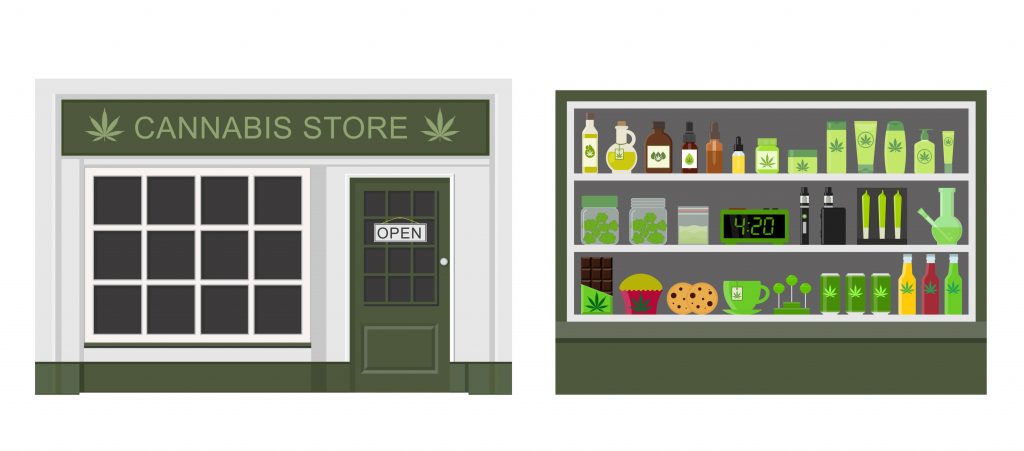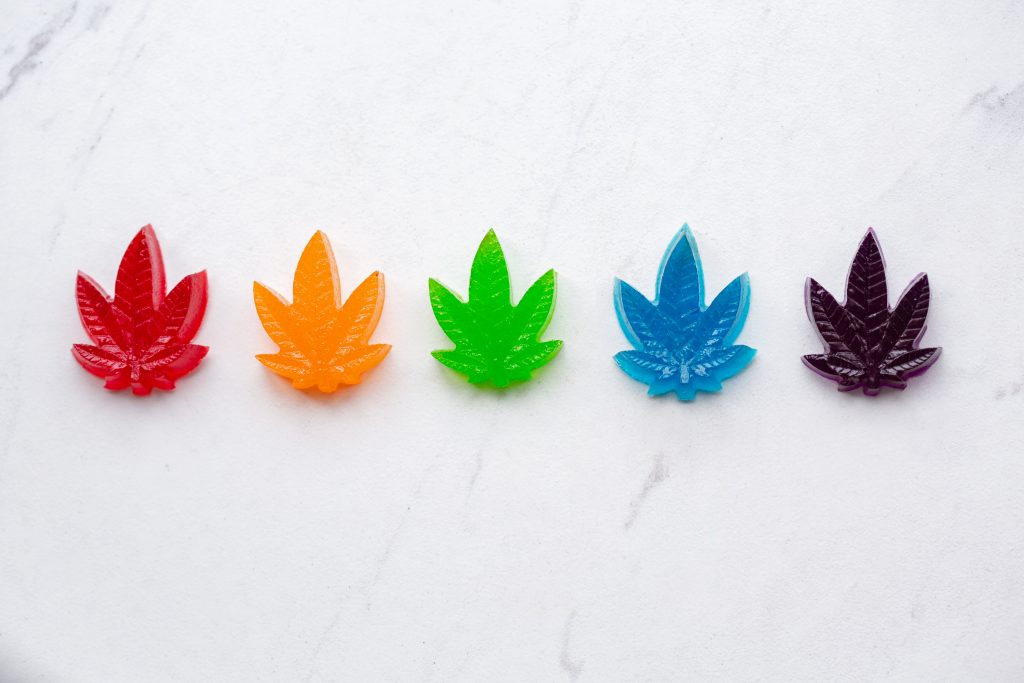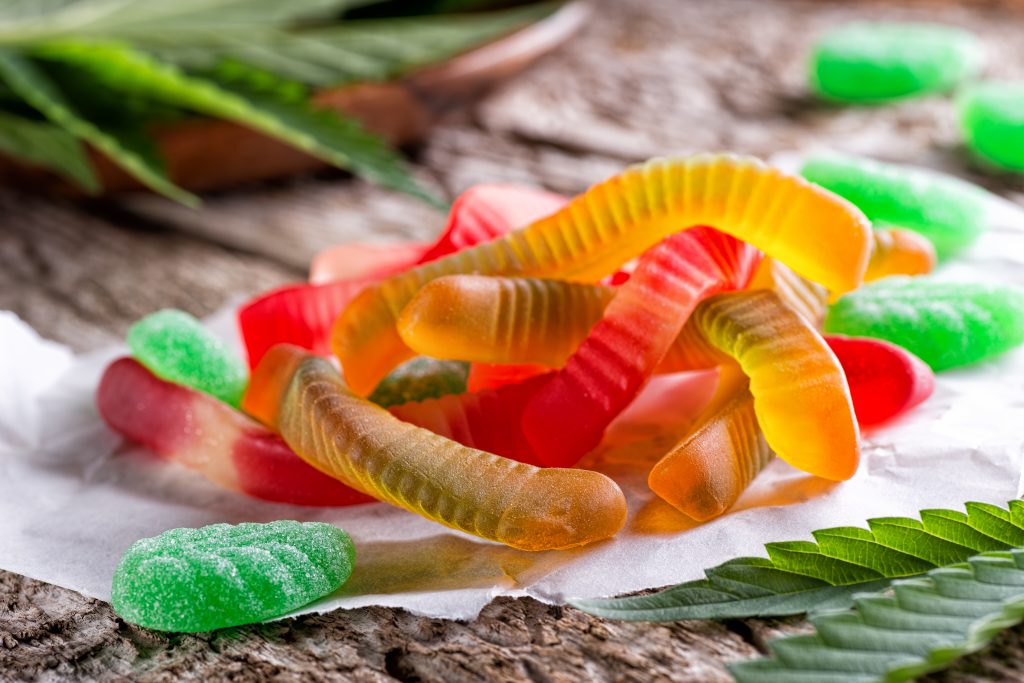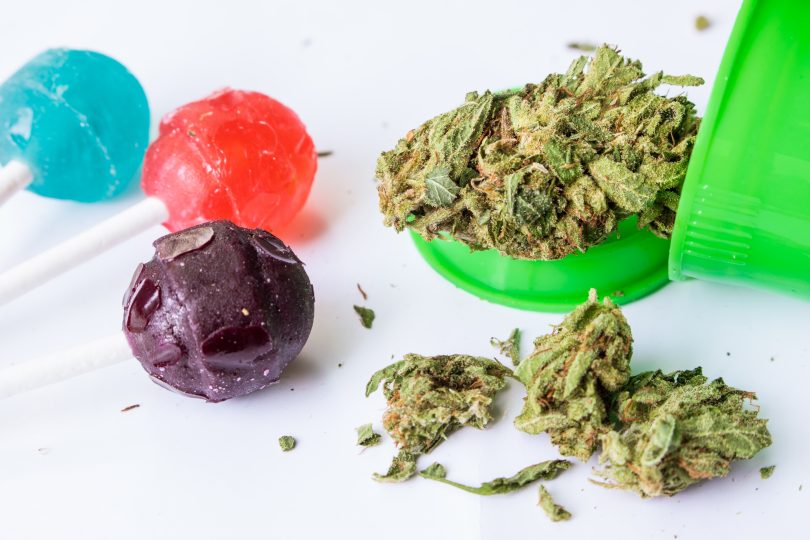We know synthetic cannabis gets sold, and we know the fake vape market is huge. But what about fake edibles? As the legitimate cannabis industry grows, so does its black market counterpart, and that means even fake edibles. Here’s how to know you’re getting the real deal.
The fakes market is always out there, and you must be your own informed buyer if you don’t want to end up with fake edibles and fake vape carts. It’s definitely a know-your-brands world. We’ve got tons of real-deal products for you to try out your favorite cannabis compounds. Subscribe to The Delta 8 Weekly Newsletter. Also save big on Delta 8, Delta 9 THC, Delta-10 THC, THCO, THCV, THCP & HHC products by checking out our “Best-of” lists!
Cannabis black market
Simply legalizing something and creating a legal market, is rarely the end of the story, and certainly not when dealing with cannabis. It should be remembered that the cannabis industry has survived quite strongly as a black market, and it is the legal industry that seeks to divert from these well-established channels. While it’s nearly impossible to get precise statistics, there is plenty that we know about the black market cannabis industry vs the legal cannabis industry in America.
It’s been understood for several years now that the legal cannabis market has been having problems competing with the black market. California is a great example of the problems that abound. Different states can have different issues, because of different levels and intensities of regulation and taxes. However, as the biggest single market in the US, and the world, California tells us a lot about what we can expect.
California’s legal market brought in approximately $3 billion in 2019. That same year the black market brought in an estimated $8.7 billion. When looking at where and how people are buying their cannabis goods, California is also a great example. According to a Politico article, California – possibly due to its strict regulations – has a lower number of legal dispensaries per inhabitants. Whereas Washington state and Colorado have 17-18 dispensaries per 100,000 residents, California has closer to two. In fact, the state only has about 823 licensed dispensaries.

On the other hand, it has about 3,000 illegal dispensaries and delivery services. Possibly as many as 50,000 illegal growing operations, and a growing range of synthetic and black market products. Whereas the black market used to be strictly a flower market (edibles were more done on a personal basis in my experience), it has now evolved to mimic the products of the legal market. And that means fake vapes and fake edibles as well.
The legal market is having such a hard time competing with the black market, that the California cannabis industry received approval for a bailout in 2021. Though there could be many reasons for having difficulty moving a black market to a legal one, one of the biggest issues seems to be in price, with very high taxes being applied, which make the illegal operations look that much better.
While California might have the biggest woes, these issues can be seen in every legal market, where few, if any, have surpassed the local black market. This was evidenced to me by the massive number of black market dispensaries in Las Vegas, some even brazen enough (or connected enough) to open their illegal operations, and sell their products, in the middle of the Las Vegas strip.
Fake edibles – is this really an issue?
The increase in vapes and edibles has been one of the distinguishing factors of the cannabis boom. Before this century, there was no market for these products, legal or otherwise. And now they’re highly popular items. Seattle based firm Headset, which specializes in cannabis analytics, put out end-of-year data showing a 60% increase from the year before, across seven states, when it came to edibles. This accounted for both medical and recreational in California, Colorado, Massachusetts, Michigan, Nevada, Oregon and Washington. Edibles took up about 11% of the cannabis market share in 2020 for these states.
When I was in Las Vegas, it became easy to tell a real dispensary from a fake dispensary. Real dispensaries always checked IDs, sell more than just distillate vapes, use pricing that accounts for taxes, and will ALWAYS go by regulation in terms of how much THC can be in a product. When I saw gummies with 40 mg of THC per gummy advertised in Nevada, I knew it wasn’t real because Nevada has a 10 mg limit. So should it be expected these gummies actually have THC in them at all?
Not really. Just like selling fake vapes as distillates, (because distillates don’t taste like cannabis and can be faked easily with the same flavoring used for synthetics), the same is true for edibles. And since they’re made to look like the real thing anyway, making a synthetic edible can mean literally using the real thing…along with synthetics. According to a journalist for Complex magazine, Zachary Harris, “all dealers need to do is unwrap bulk quantities of real Nerds Rope or Sour Patch candies, spray them with cheap THC distillate, and repackage them in the pre-labeled edible bags.”

In terms of what he meant by ‘cheap THC distillate’, Harris went on to explain that most of the time the distillate is actually the same thing used in fake vapes. Likely the same HHC-related compound that shows up as fake cannabis, usually in the form of something sprayed onto something else. This is relevant to products being sold as fake flower, what ends up in vape carts, and what goes into edibles too.
While Harris stipulated that this doesn’t mean there’s going to be a massive health crises ensuing, he does point out that this can mean potentially unsafe manufacturing practices, with unexpected variation in potency, both of which can lead to issues including using the wrong amount, contamination, the use of dangerous additives, and a myriad of health issues that can come from various chemical additives.
Here are a few things to look out for if you think you might be buying fake edibles:
- First and foremost, where did you get them? If you didn’t get them from a legit dispensary, they’re very likely not real. You can assess this by whether the dispensary checked your ID at the door, the amount of THC in products, the presence of vapes that aren’t distillates or isolates, and the general price of products. If an ID isn’t checked, if only distillate carts are sold, if the THC in products goes over the allowable regulated amount for that location, and if the products don’t match standard dispensary pricing, you are unlikely to be in a legit dispensary.
- Does the company exist online? If you can’t find any information about the company putting out the product, it’s probably not real. Real companies have plenty of information available on their products, and generally work to have a verifiable online presence. If this can’t be found, beware of the products.
- What about the packaging? If the packaging for the edibles is found in bulk online, then its likely to be fake. Real companies don’t sell their packaging online, and they don’t buy it from online either. They create their own, with their own branding and labeling. If you bought a product for which you can buy the packing yourself online, it’s likely not legit. This is especially true if the product uses branding from known non-cannabis retailers. No legit business will use copyrighted material from another company.
- Does it all sync up? Does the product match the packaging, or is it off in some way? If there are discrepancies, it’s likely fake. If the packaging looks like it was not meant for that specific product, it really probably wasn’t. The packaging should be realistic to the product inside, and if it’s not, the product might not be real at all.

Are fake edibles just as bad as fake vapes?
It certainly doesn’t seem like it, though it’s hard to know for sure, and they both come with their own issues. One of the problems with vapes, is that they include the use of heat, and heat can cause problems by changing compounds, or causing them to interact in different (and unexpected) ways. So, while an edible and a vape cart might have the same additive compounds, that issue might be more problematic when it comes to actually smoking them. There’s also the issue of what some of these chemicals might do in the long term, that we just don’t have data for yet. It took years to know that smoking causes cancer, perhaps we’ll find out some of the chemicals used in fake cannabis products, are also carcinogenic.
One of the things about edibles, especially when illicit, is that they’re not in any kind of child-proof container (also a decent giveaway these days, as legit companies generally over-package their products to be barely openable). And let’s be honest, every kid likes candy. While I often scoff at government fear campaigns, I can see an honest issue here. Whether legit or synthetic, a small child shouldn’t have access, and these tactics make it that much easier for kids to eat what they should not.
As with vapes, the last practical aspect of looking at this, is that a buyer simply isn’t going to get what they’re intending to get, if the active ingredient is different. Sure, a person might pay out less, but that’s weird to begin with, and means getting something other than what’s being advertised. People are so strung out for cash, that a cheaper option often won’t be questioned, even when it offers something too good to be true, and the result is less than that. If a legal dispensary is selling .5 gram vape carts at close to $50, then getting one gram anywhere for $30 should be a major tip-off. Just like, if a pack of gummies with 10 mg per gummy costs $40 in a real dispensary, and a fake one is offering 40 mg of THC each, twice as many, and at half the cost, then there’s probably a problem.
Conclusion
The idea of products being tainted is always problematic, and that seems to be a huge issue in today’s cannabis black market. Maybe today its not a super-massive issue, but tomorrow it could be. The isolated incidences of vape deaths from additives tell us this can happen. Much like with vapes, and dispensaries in general, it’s a buyer-beware market. Good products exist, but not all can be bought on the black market. So unless you want fake edibles and fake vapes, I suggest being an informed shopper, and knowing both the dispensary from which you’re buying the products, and the companies putting them out.
Hello and welcome! You’ve arrived at CBDtesters.co, the best cannabis and psychedelics-related news publication online, with all the most relevant and interesting stories going on currently. Stop by regularly to stay informed on the ever-moving landscape of legal drugs and industrial hemp, and remember to sign up for The Delta 8 Weekly Newsletter, to ensure you never miss a single thing.
Disclaimer: Hi, I’m a researcher and writer. I’m not a doctor, lawyer, or businessperson. All information in my articles is sourced and referenced, and all opinions stated are mine. I am not giving anyone advise, and though I am more than happy to discuss topics, should someone have a further question or concern, they should seek guidance from a relevant professional.









